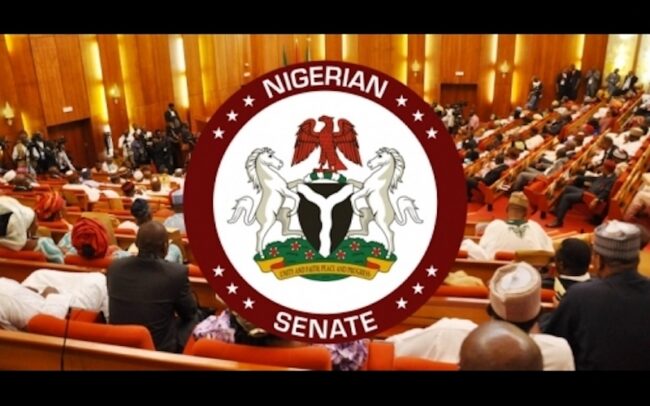An executive bill which seeks to review the salaries, allowances and fringe benefits of judicial office holders across the country passed second reading on the floor of the Senate on Thursday.
Checks revealed that the Bill was presented to both chambers of the Parliament by President Bola Ahmed Tinubu and it had since passed second reading in the green chamber.
Presenting the lead debate, Senator representing Kwara South and Deputy Senate Leader, Oyelola Ashiru disclosed that the bill, when passed into law “seeks to prescribe salaries, allowances and fringe benefits for judicial officers in order to nip in the bud, the prolonged stagnation in their “remuneration so as to reflect the contemporary socio-economic realities of our time.
“Similarly, the bill intends to unify the salary structure as well as allowances and fringe benefits of judicial officers holders both in the federal and at the state levels. This proposed legal framework, undoubtedly, will bring about significant improvement in the welfare, capacity and independence of the judiciary, which have been contentious issues of public discourse over the years.”
The Deputy Senate leader further maintained that “the purport and intent of this Bill are in conformity with the current administration’s resolve to strengthen the country’s Judiciary and the criminal justice system, with a view to ensuring its independence in the performance of its constitutional role, as the arbiter of the temple of justice.”
He implored his colleagues ” to support the ‘expeditious passage of this bill in view of its importance to the socio-economic and political development of this country.”
By the provisions of the bill, judges are to get over 800 per cent pay rise, as the Chief Justice of Nigeria is to earn N64.6m annual basic salary and allowances, far higher than what obtains currently.
Other justices of the Supreme Court are to earn annual basic salaries and regular allowances of over N60m annually.
The new salary structure is expected to come into effect from 1 January, 2024.
Contributing to the debate, Senator representing Edo North, Adams Oshiomhole said “the prevailing economic conditions demand that we review wages, taken into account the rate of inflation.”
Oshiomhole said that there should be a clause in the bill that will adjust the wages of the judicial officers based on the level of inflation yearly.
He said: “At the time we passed the budget last year at N750 per dollar, the overall cost of living compared to what it is today is different. The issue of salary administration needs not be brought to parliament for debate.
“We need to fix a clause that says, provided that every year, within that law, there should be a provision of appropriate organs to review and take into account the rate of inflation and adjust the wages of both Chief Judge of the Federation and all the judges that are covered by this act.”
Senator Abba Moro also spoke in support of the bill as he noted that given the rate of present inflation, judicial officers must not be allowed to fall into temptation.
In his own submission, Senator representing Kano North and Deputy Senate President, Barau Jibrin described the bill as laudable.
“They can’t agitate like other workers. They have been crying in silence. If we take the judiciary seriously, we must also take their remuneration seriously.”
After scaling second reading, President of the Senate referred the bill to the Committee on Judiciary, Human Rights and Legal Matters to report back in four weeks.
ALSO READ THESE TOP STORIES FROM NIGERIAN TRIBUNE
